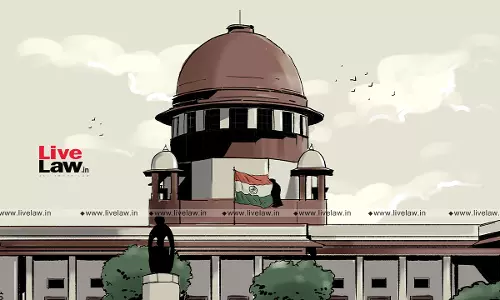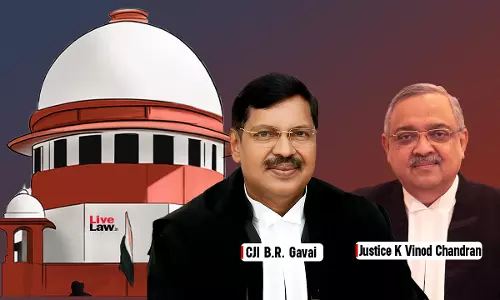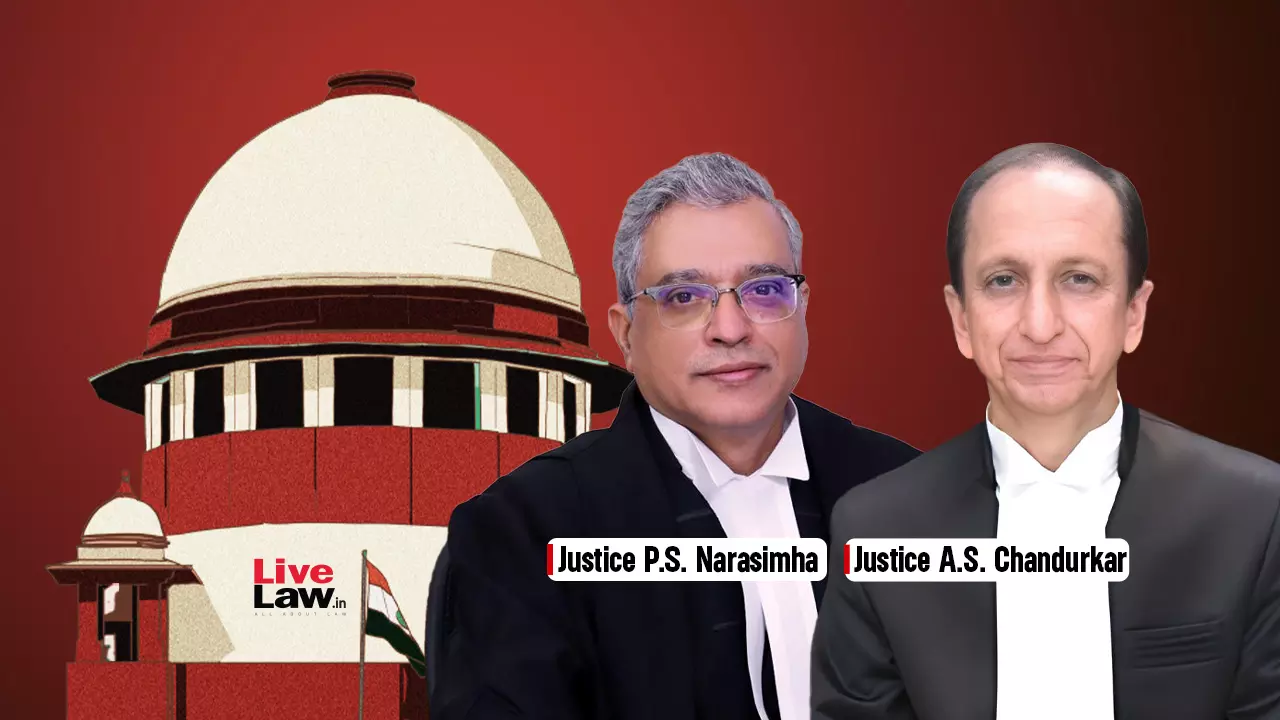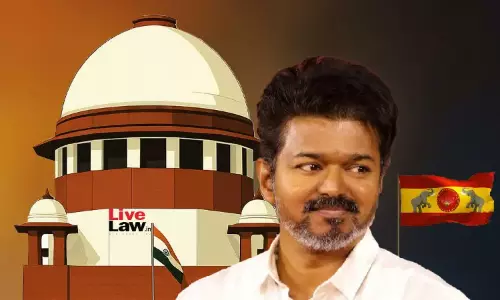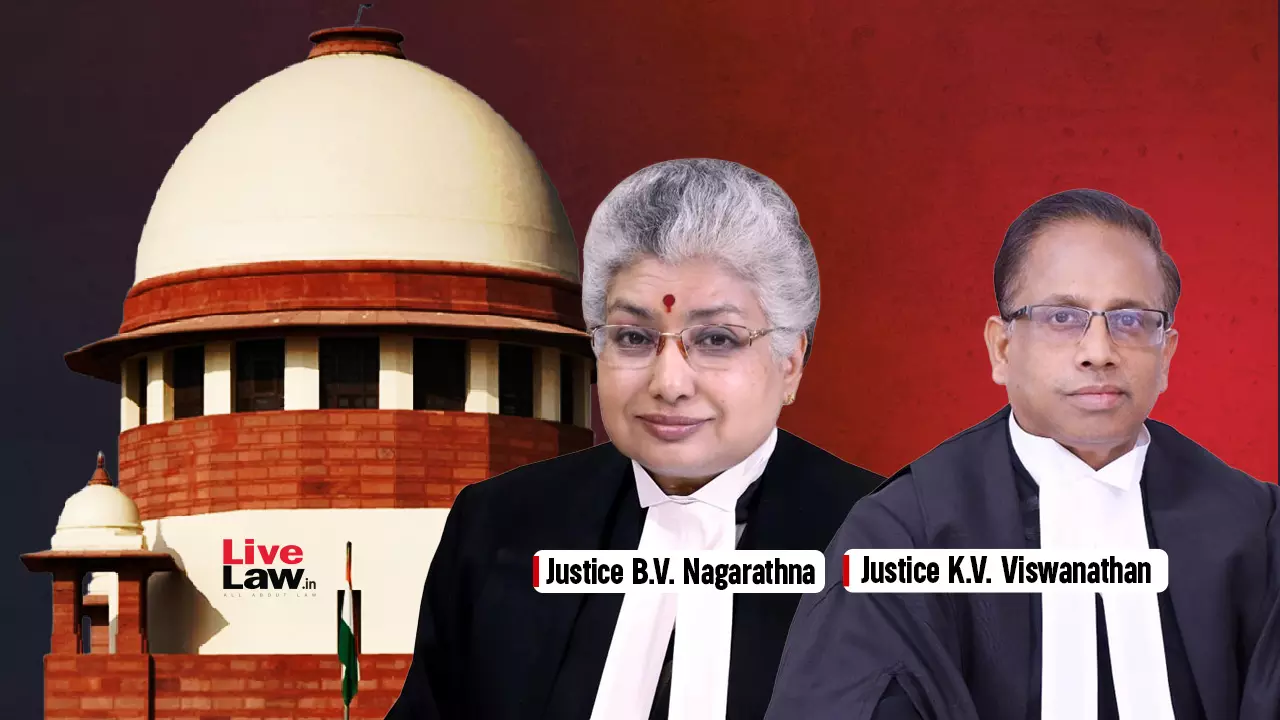Supreme court
Supreme Court Reverses Acquittal Of Man For Daughter-in-Law's Murder In 1997
The Supreme Court on Tuesday (October 14) has set aside the acquittal of a father-in-law in a case connected to the murder of his daughter-in-law, after noting that the circumstantial evidence pointing towards his guilt, including the chain of circumstances, was complete. A bench of Justice Sanjay Kumar and Justice Alok Aradhe set aside the Madhya Pradesh High Court's Gwalior Bench order, noting that although the appeal against the acquittal carries with it a proof of innocence, the Appellate...
Magistrates Can Direct Witnesses To Give Voice Samples, Not Just Accused; Article 20(3) Not Violated : Supreme Court
The Supreme Court held that a Magistrate can direct the collection of voice samples not only from accused persons but also from witnesses. It ruled that such samples, whether voice, fingerprints, handwriting, or DNA, constitute material evidence rather than testimonial evidence, and therefore do not infringe the constitutional protection against self-incrimination under Article 20(3). A Bench of Chief Justice B.R. Gavai and Justice K. Vinod Chandran relied on the 2019 precedent Ritesh...
Plea Of Lack Of State's Consent For CBI's Investigation Should Be Taken Soon After FIR Registration : Supreme Court
The Supreme Court held that objections regarding the CBI's lack of state consent under Section 6 of the Delhi Special Police Establishment Act, 1946, must be raised at the earliest stage, usually right after the FIR is registered. It clarified that once the investigation is complete, a chargesheet is filed, and a magistrate takes cognizance, such objections cannot be used belatedly to...
Land Acquisition Can't Be Challenged After Accepting Compensation: Supreme Court Rejects Company's Plea To Restore Singur Land
The Supreme Court has overturned the Calcutta High Court's decision to restore land to a private company based on the 2016 Kedar Nath Yadav v State of West Bengal precedent. The Court stated that its 2016 ruling, which quashed the Tata Nano plant acquisition in Singur, provided a targeted remedy for farmers and was not a general right for commercial entities that had accepted the acquisition...
For Lawyers To Double Up As Mediators, They Need To Acquire Different Skills; Listen Than Speak : Supreme Court
The Supreme Court recently commended a Court-appointed mediator for successfully resolving a 40-year-old civil dispute, observing that it is “inevitable” for lawyers to transition into the role of mediators, which demands a shift in approach from adversarial litigation to constructive problem-solving."If lawyers are to double-up and evolve as mediators, a development which we consider...
DRT Must Decide Securitisation Applications Within Statutorily Mandated Timeline : Supreme Court
The Supreme Court recently criticized the Debt Recovery Tribunal, Dehradun, for failing to decide a securitisation application preferred by a Bank within the statutory timeline mandated under the Securitisation and Reconstruction of Financial Assets and Enforcement of Security Interest Act, 2002 ("SARFAESI Act"). After noting that the DRT failed to abide by the strict timelines prescribed...
Supreme Court Raps Plaintiff For Withholding Possession After Receiving ₹2 Crore In Lieu Of Specific Performance, Imposes Rs 10 Lakh Costs
The Supreme Court recently came down heavily on a plaintiff in a specific performance suit who refused to vacate the property even after being awarded ₹2 crore as compensation in lieu of specific performance of a sale agreement.The Court strongly disapproved of the litigant's attempt to exploit the omission in the earlier order,which had not expressly directed the handing over of...
Supreme Court Half Yearly Digest 2025: Land Law
Although the land acquisition compensation is to be determined at the market rate prevailing on the date of issuance of the notification regarding the acquisition of land, the compensation can be determined based on a later date in exceptional circumstances when the delay in the disbursal of the compensation has been inordinate. Bernard Francis Joseph Vaz v. Government of...
Surrogacy Act Does Not Affect Rights Vested In Couples Who Froze Embryos Before Law Took Effect : Justice Viswanathan's Concurring Judgment
The Supreme Court held that couples who had frozen embryos for surrogacy before the Surrogacy (Regulation) Act, 2021 came into effect on January 25, 2022, had acquired vested rights to surrogacy which the Act could not retrospectively take away.Justice KV Viswanathan, in his concurring opinion, said that by completing the fertilisation process before the statutory cut-off date, the couples...




